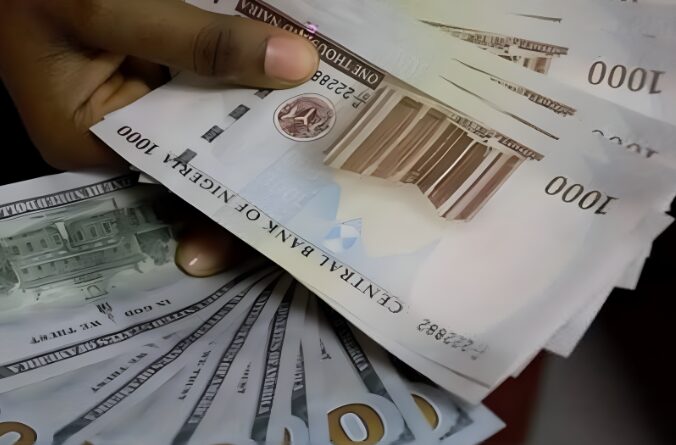According to data from the NCS exchange rate portal, the exchange rate used by the Nigerian Customs Service (NCS) to collect import duties has surged to N1457/$, marking the highest rate in just over six weeks.
This increase contrasts with the gradual appreciation of the naira witnessed since late March, when the rate peaked at N1572.5/$. Subsequently, policies from the Central Bank of Nigeria (CBN) led to a decline in the customs exchange rate to a three-month low of N1147/$.
However, recent fluctuations suggest a reversal of the gains made in March, when the naira was lauded as the best-performing currency globally for the month, according to analysis by Goldman Sachs bank.
An analysis by Nairametrics indicates that the naira has weakened by 26% since being recognized as the best-performing currency, particularly evident since April.
On Friday, the official exchange rate closed at N1466/$, while the parallel market saw a rate of N1470/$.
This depreciation aligns with the cessation of foreign exchange sales to Bureau De Change (BDC) operators below the official market rate. The CBN had intervened by selling $10,000 to BDCs just below the official rate, coinciding with a drop in the country’s foreign reserves. Analysts suggested this was a move to support the naira using the reserves.
Despite the decline in reserves, CBN Governor Yemi Cardoso clarified during the World Bank-IMF spring meeting that the shift was unrelated to defending the naira. He attributed it to debt payments, emphasizing the importance of maintaining credibility.
Cardoso stated, “The shift you see in our reserves has little to do with defending any naira, which is certainly not our objective. What you see concerning the shifts in our reserves is the shift you will find in any country’s reserve situation where, for example, debts are due and certain payments need to be made to keep your credibility intact.”


